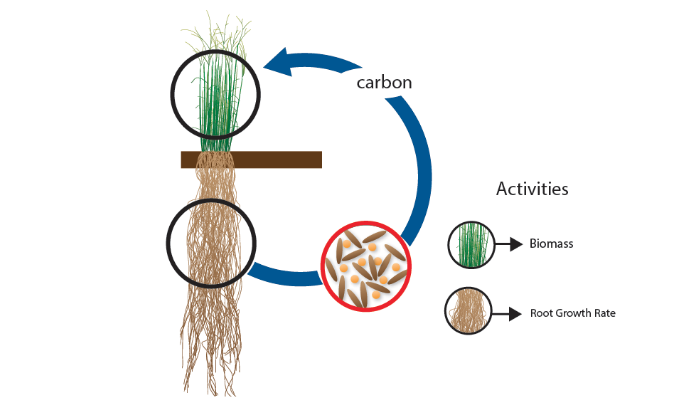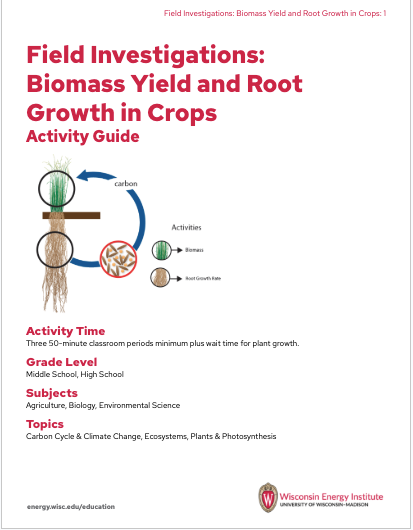
This field investigation serves to strengthen student understanding of the ability of plants to sequester carbon above and below ground. Students will measure above ground biomass by harvesting small samples, and root growth using ingrown root-cores. These activities are adaptable to school-yard plots, existing agricultural plots or natural areas. Extend the learning by combining this activity with The Science of Farming research story, Growing Energy data dive, Root Depth Model, Bioenergy Farm Game, and Fields of Fuel computer game.

Subjects
Agriculture
Biology
Environmental Science
Topics
Carbon Cycle & Climate Change
Ecosystems
Plants & Photosynthesis
Concepts/Skills
Carbon cycle, biomass, bioenergy, photosynthesis, carbon sequestration, climate change, data analysis, scientific argumentation
Prior Knowledge
Basic knowledge of greenhouse effect, carbon cycle, photosynthesis, and glucose transport in plants.
Time Required
Three 50-minute classroom periods minimum plus wait time for plant growth.
Required Supplies
Biomass sampling: Scissors or plant shears, Quadrats – 30 x 30 cm squares can be constructed with rulers (small hoola-hoops work well), Pan(s) for collecting and drying, Oven(s) for drying (optional).
Root growth sampling: #5 plastic mesh plastic canvas sheets (13 1/4” x 22” needlework mesh), Adhesive, Utility knives or scissors, 2” knockout test caps, Masking Tape, Stapler and staples, Tweezers, Trays for separating root mass, Bulb planter or trowel, 2” diameter soil probe, Marker flags, Shovels, Rulers.
